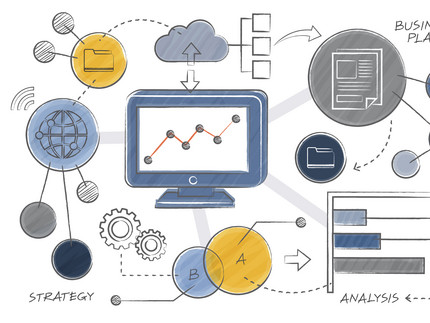The lecture offers a fundamental introduction to key topics and current trends in business informatics. The aim is to provide students with a sound understanding of the key concepts, technologies, and challenges of digital transformation. There is a particular focus on interactive course design, in which students are actively involved. Discussion formats and the use of modern tools such as audience response systems promote mutual exchange and bring content to life. The focus is on three key topics that enable a comprehensive and differentiated view of digital transformation: team & individual, organization, and society. The topic area Team & Individual examines the transformative effect of digital technologies on individual decision-making processes and interpersonal collaboration, for example through the use of AI-based assistance systems or collaborative platforms. In the area of Organization, the focus is on the strategic redesign of digital business models, e.g., the use of AI in operational processes or the change in team dynamics through the use of digital collaboration tools. The Society area is dedicated to the macrosocial implications of digital transformation, including the role of social media in political and cultural discourse, as well as the ethical and normative issues associated with the increasing spread and use of digital technologies.
Summer and winter semesters
Projects in Information Systems
In information systems projects, students work in groups on research- or practice-oriented questions. The goal of practice-oriented business information systems projects is usually to solve a practical problem, for example by gathering requirements, prototyping, and evaluating an artifact. In a research-oriented project, the focus is on learning and applying scientific methods (e.g., literature research, interviews, experiments, or surveys) to gain scientific insights. An essential part of the business informatics project is also working and self-organizing in a group and presenting the results. The performance is documented in a project report. Please note that the number of participants for this module is limited to 15 students. If the number of registrations exceeds this limit, priority will be given to students who are taking the module in accordance with their study plan. Places will then be allocated according to semester, with preference given to students in higher semesters. A formal application is not necessary to take the module at the Chair of Digital Transformation.
Summer and winter semesters


